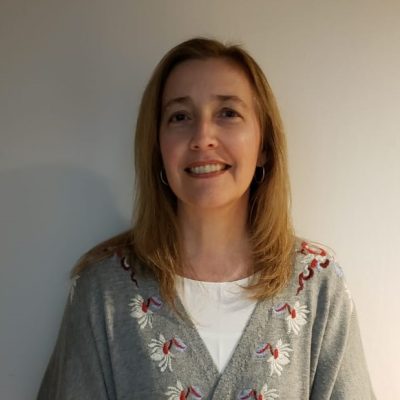Fernanda González
Background
Continuing our series of conversations with female leaders in the global crop science community, I contacted Fernanda Gonzalez, a Senior Scientist at CITNOBA CONICET, Argentina (@FerGGonzalez73). She is a researcher I have known for many years and someone who I hugely admire for her careful and engaging research. Following the interview format used (https://womenincropscience.org/interviews) we learnt about her research, motivations and some quick-fire questions too.
Can you briefly describe what you do?
In order to increase winter cereal productivity, I investigate how the yield responds to environmental factors such as photoperiod, vernalization, radiation, nitrogen, and water shortage.

Why did you get into research and especially Crop Science?
Perhaps because my father was a researcher as well, I had aspired to be one since high school. It is good to know that you have contributed even a tiny bit to knowledge in society. Crop Science happened by accident! In the Biology Theme, namely genetics, was where I made my first attempt to obtain a post-graduate scholarship. It was a significant drop! In spite of my outstanding university grades, I was not awarded the scholarship. First lesson learnt! It was a mistake to enter the biology competence being an Agronomist! Then, I was considering moving to Rosario to get a Master’s degree in Genetics. I was currently residing in Buenos Aires. Just at the right time, a friend of mine told me that the Plant Production Department (Facultad de Agronomia, UBA) had a post-graduate fellowship in wheat crop physiology. It was a good lab, both academically and in terms of the kindness of the staff. A few good friends had scholarships there as well. I then made the decision to apply, and luckily, I was successful. This is how my study in wheat crop physiology came to an end, which was definitely not what I had anticipated!
Rapid-fire questions
Lab or field?
Field
Conference or stakeholder meeting?
Conference
Literature review or project report?
Literature review
Conventional or molecular methods?
Both!
Hybrid, inbred or vegetative?
Inbred
Qualitive or quantitative research?
Quantitative
GenStat or R?
None!! Infostat!
Favourite crop & why?
Wheat, mainly because I enjoy seeing fields in the winter and spring, but also because it has a lengthy history with humanity!
Who has influenced you the most and why?
The researcher who I believe most impacted me was Antonio Hall (IFFEVA-FA-UBA). When I was doing my doctoral studies at the FA-UBA, he served as the director of the post-graduate scholarship program. His dedication to us was admirable. He always stopped by and asked questions about each student’s poster at conferences. He pushed us to use critical thinking in his post-grade course, and I can still remember that. The presentations for the micro seminars in that course were a challenge! His intellectual honesty is exceptional.
Most important publication or the publication of which you are most proud?
Pretini, N., Vanzetti, L., Terrile, I.I., Börner, A., Plieske, J., Ganal, M., Röder, M., González, F.G. 2020. Identification and validation of QTL for spike fertile floret and fruiting efficiencies in hexaploid wheat (Triticum aestivum L.). Theoretical and Applied Genetics. doi.org/10.1007/s00122-020-03623-y
What is your favourite aspect of your research?
The multidisciplinary approach we used is my favourite aspect.
What would make your research and crop science experience even better?
It would be amazing if we had more funds and could exclusively focus on research. The majority of academics in Argentina currently spend a lot of time not just only looking for money but also managing it, enhancing infrastructure, etc.
Where do you see yourself in 5 years?
Translating our research to the breeding programs
Beach or mountain?
Mountain
Tea or coffee?
Tea (earl grey)
Appetizer or dessert?
Dessert
Instagram or Twitter?
Twitter
Fame or fortune?
None, rather the self-satisfaction felling when completing the intended goal!
Final Word by Laura Dixon
Thank you so much for sharing your responses, Fernanda.
I wanted to interview Fernanda as she is a researcher I really admire. I met her soon after I started my postdoctoral role with the JIC and was really struck by her warmth, integrity and engagement with her scientific research, despite facing many challenges regarding where scientific research sits as a priority in the funding landscape. This interview has identified that some of the things I admire in Fernanda are also core values she appreciated in her advisor, they have clearly rubbed off on her!
